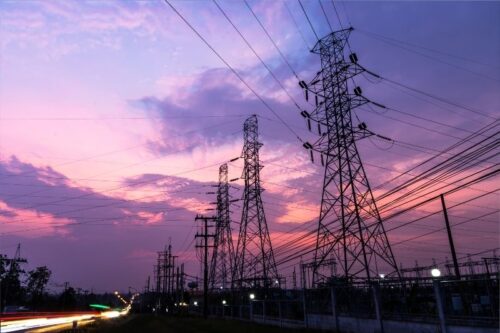SUMMARY: Decarbonization and electrification in HVAC are becoming essential as businesses seek sustainable solutions, driven by government incentives and corporate responsibility goals. While transitioning to electric-based HVAC systems offers long-term cost savings and environmental benefits, challenges such as grid readiness, upfront costs, and energy sourcing must be carefully managed. Donnelly Mechanical provides expert guidance, seamless transition planning, and compliance assistance to help businesses navigate the shift toward more efficient, electrified HVAC solutions.
—
As businesses strive for more sustainable operations, decarbonization and electrification are becoming key priorities in the HVAC industry. With increasing government incentives and rising environmental consciousness, many companies are making the shift toward electric-based HVAC solutions. However, challenges such as grid readiness, fuel choices, and upfront costs remain significant considerations. In this blog, we explore how businesses can balance energy efficiency with practical decision-making when upgrading their HVAC systems.
Understanding Decarbonization and Electrification in HVAC

Decarbonization refers to the process of reducing or eliminating carbon dioxide (CO2) emissions from energy systems. In the context of HVAC, this means transitioning away from fossil fuel-based heating and cooling methods toward cleaner, renewable energy sources.
Electrification is a key component of decarbonization. It involves replacing traditional HVAC systems that rely on natural gas, oil, or other fossil fuels with electric-powered systems. By adopting high-efficiency electric HVAC systems, businesses can significantly reduce their carbon footprint while improving operational efficiency.
Why Businesses Are Transitioning to Electric-Based HVAC Systems
- Government Regulations & Incentives
- The federal government, along with state and local authorities, is offering incentives and rebates to encourage businesses to adopt energy-efficient HVAC solutions.
- New York City’s Local Law 97, for example, sets carbon emission limits on buildings, making decarbonization strategies like electrification more crucial for compliance.
- Sustainability Goals & Corporate Responsibility
- Many companies are setting ambitious carbon neutrality goals. Investing in electrification aligns with sustainability initiatives, reducing greenhouse gas emissions while enhancing brand reputation.
- Operational Cost Savings & Efficiency
- High-performance electric HVAC systems, such as heat pumps, are often more efficient than traditional combustion-based systems.
- Lower maintenance costs and energy efficiency improvements translate to long-term financial benefits for businesses.
ACHIEVING NET-ZERO EMISSIONS WITH THE RIGHT TECHNOLOGY
Challenges in HVAC Electrification
While the benefits are clear, businesses must navigate several challenges when transitioning to electric-based HVAC solutions.
- Grid Readiness & Infrastructure
- Widespread electrification increases demand on the electrical grid. Businesses must assess whether their local grid can support the additional load required for an all-electric HVAC system.
- Some older buildings may require electrical upgrades before an electrified HVAC system can be installed.
- Upfront Costs & Financial Considerations
- The initial investment in new HVAC infrastructure can be substantial, especially for large commercial buildings.
- However, businesses can leverage available incentives, tax credits, and financing programs to offset costs.
- Energy Source & Availability
- Electrification is only as clean as the energy that powers it. Businesses should consider sourcing electricity from renewable sources such as wind, solar, or hydro to maximize decarbonization benefits.
- Hybrid solutions, such as pairing heat pumps with backup natural gas systems, may offer a viable transition strategy for certain applications.
How Donnelly Mechanical Supports HVAC Electrification & Decarbonization
As New York City’s premier mechanical contractor, Donnelly Mechanical helps businesses navigate the complexities of HVAC electrification and decarbonization. Our customized solutions ensure that companies achieve peak efficiency while minimizing downtime and operational disruptions.
Our Approach to Sustainable HVAC Upgrades:
- Comprehensive Energy Assessments: We analyze current HVAC performance and recommend electrification strategies tailored to each facility’s needs.
- Seamless Transition Planning: Our dedicated Transition Team minimizes risks associated with upgrading HVAC systems.
- Expert Installation & Maintenance: Our rigorously trained technicians ensure long-term reliability and efficiency.
- Compliance Assistance: We help businesses align with Local Law 97 and other regulatory requirements.
Looking Ahead
The push for decarbonization and electrification in HVAC is only accelerating. As technology advances and renewable energy sources become more prevalent, businesses that adopt electric HVAC solutions will gain a competitive edge. With the right planning, investment, and expert support, transitioning to sustainable HVAC solutions can lead to long-term cost savings and environmental benefits.
Donnelly Mechanical is here to help businesses make the transition to a cleaner, more efficient future. To learn more, visit our website and contact us today about how we can support your HVAC electrification and decarbonization goals.